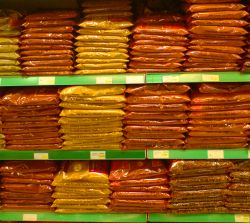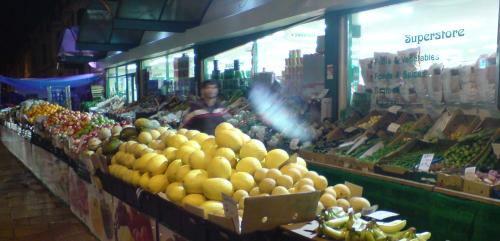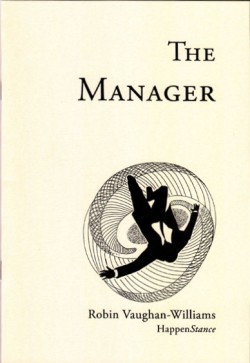Andrew Kells’s new ghost script, Sent/Received, has the trademark characteristics of any good ghost story: entrapment, suspense, fear…mummies in the closet. But instead of gothic towers, rakish libertines, and letters stained in blood, it’s got, well, text messages. Lots of them, in fact. But as the messages start to fly, it becomes apparent they’re not quite as instant or ordinary as they might seem.
Texts have been used before as a literary medium. In Japan texts are commonly used as individual chapters in flash fiction stories, delivered direct to the reader’s phone. They call it keitai shousetsu, or the cellphone novel. Sent/Received may well be the first SMS ghost script though.

Andrew Kells
Andrew was attracted by the brevity of texts and the scope the provide for miscommunication. The way his wife might text him from the supermarket asking if he wanted potatoes, but by the time he got the message and replied she could be miles away, as if they were on split time lines. Which is exactly what happens in Sent/Received, where texting is the only way of communicating between split time streams.
‘We expect technology to deliver instant results’, he says, ‘There’s this faith that technology will solve our problems, but it doesn’t’.
Sent/Received, with Andrea Milde and Jonathan Greaves as its time-slip victims, has its first performance at Skype Me! Sheffield and the World at Showroom Cinema 5 on 29 October (7.30pm). The night brings together writers from around the world, appearing on screen via Skype, with writers in Sheffield, exploring just how connected we really are.
Robin Vaughan-Williams, who is co-hosting the Skype Me! with Sarah Thomasin, put on a similar event in Nottingham in May. ‘The effect of switching back and forth between people on stage and on Skype created a magical effect’, he says:
As we flew around the world from Mumbai to Finland to Cyprus and New Zealand, we got to see writers we would normally never have a chance to experience live, and Skype created an unusual sense of intimacy—after all, it’s just like calling someone up on the phone, and you see the writers in the privacy of their own homes, as if they’ve invited us in.
Miwa Kurihara will be getting up early in Kawasaki, Japan (5.30am local time) to call in with some haiku and a poem on the recent tsunami to devastate her country. There will also be remote appearances from Texas jam poet Thom the World Poet, who has entertained audiences and school children around South Yorkshire many times before on his annual UK tour, and Jeff Cottrill, a Canadian spoken word artist who last performed in Sheffield at the Red Deer in March 2007. A master in the art of satire—macho jocks, manipulative girlfriends and pompous literary elitists have all felt his ire.
In Sheffield, Liz Cashdan will be hooking up with her friend Liesl Jobson in Cape Town and exchanging poetic postcards. Poet and promoter Gaby Bila-Günther will be dropping by from Berlin, where she is a fixture on the spoken word scene. Chella Quint will be taking us on an epistolary journey through the stars with ‘It’s Not You. I Just Need Space. (interplanetary letters of love and rejection)’, Rob Hindle will be airing his poem-drama ‘Yoke and Arrows’ about the last weeks of the life of Federico Garcia Lorca duing the Spanish civil war, and Joe Kriss, literary editor of Now Then, will be revealing new work.
Skype Me! Sheffield and the World
Showroom Cinema 5, 15 Paternoster Row, Sheffield, S1 2BX
7.30pm, Saturday 29 October, entrance £4/£3
Website: http://www.zeroquality.net/skypesheffield.html
Facebook page: http://www.facebook.com/event.php?eid=274546715903377
Here are a few more links on SMS fiction:
- SMS was used to create a parallel narrative in Static.
- SMS Mess: The perils of text messaging.
- Keitai shousetsu, the cell phone novel (Wikipedia).


